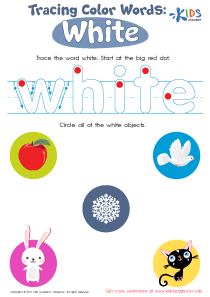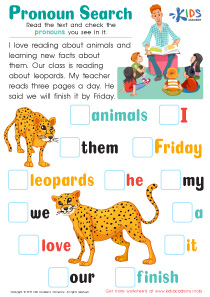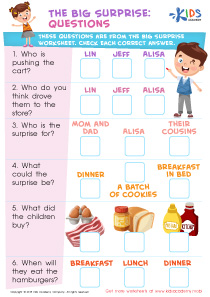Vocabulary development Grade 3 Writing Worksheets
3 filtered results
-
From - To
Enhance your third grader's vocabulary with our engaging Vocabulary Development Grade 3 Writing Worksheets! Designed to promote language skills, these worksheets incorporate fun and interactive exercises that stimulate word comprehension and usage. From matching words to their meanings to using new vocabulary in sentences, each activity fosters creativity and encourages critical thinking. Perfect for classroom use or at-home practice, these resources align with educational standards to support your child's growth in reading and writing. Help your child become a confident communicator by integrating these worksheets into their learning routine! Explore our collection today and watch their vocabulary flourish!
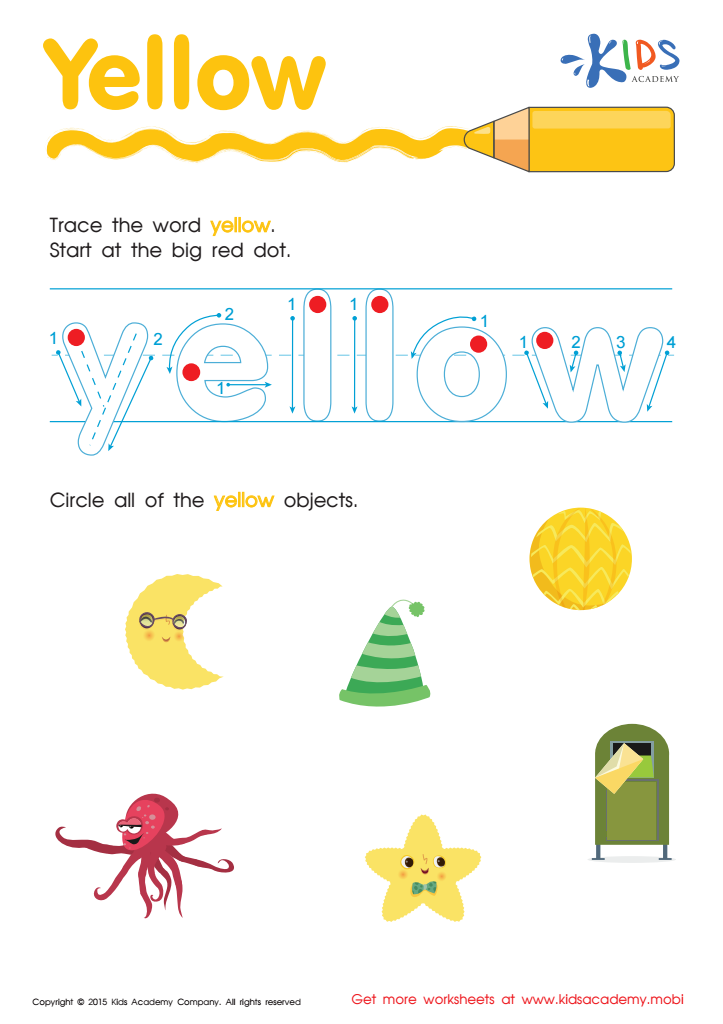

Yellow Tracing Color Words Worksheet


Phonics and Word Recognition: Assessment 3 Worksheet
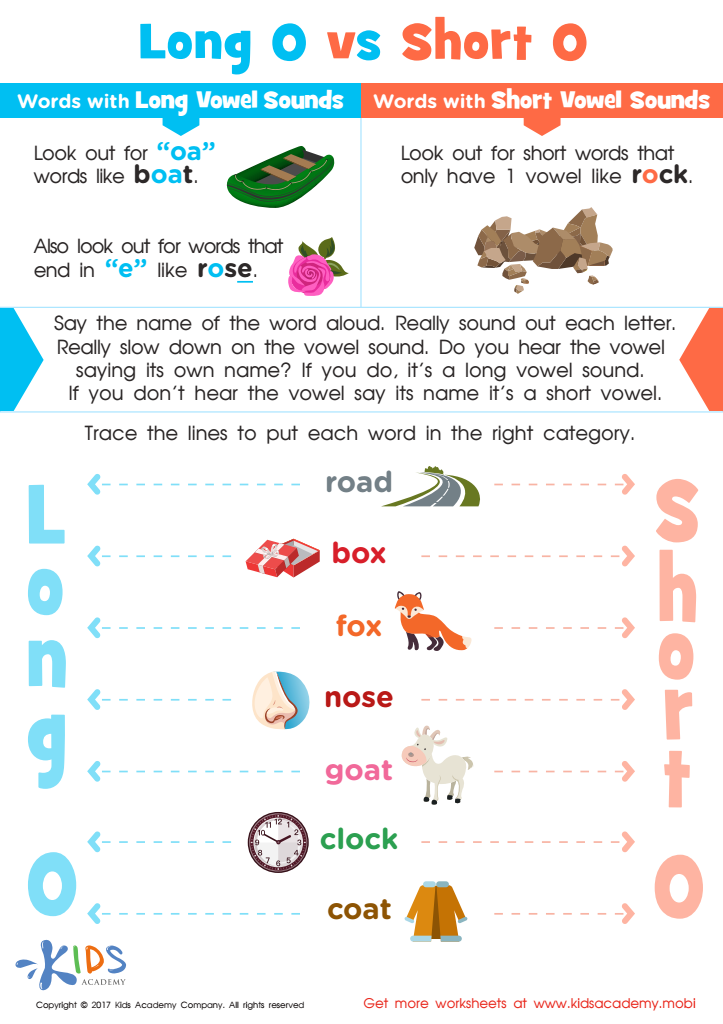

Long and Short Vowel O Spelling Worksheet
Vocabulary development is crucial for third-grade writing as it significantly influences a child's overall academic success. At this stage, students transition from learning to read to reading to learn, making a rich vocabulary essential for comprehension and expression. A robust vocabulary enables children to articulate their thoughts more clearly, enhancing both their writing and verbal communication skills.
Parents and teachers should care because an expansive vocabulary supports critical thinking and creativity. Children who have access to a variety of words can describe their ideas more vividly and engage more deeply with texts. As they encounter more challenging material in higher grades, those with strong vocabulary skills are better equipped to understand complex concepts and express their responses effectively.
Moreover, vocabulary is closely tied to social interactions. Children with advanced vocabulary can communicate more confidently with peers and adults, fostering relationships and collaborative learning opportunities. Encouraging vocabulary growth also instills a love for language and learning, motivating students to explore new ideas and question the world around them. In short, investing in vocabulary development at this pivotal stage sets a foundation for academic achievement, improved self-esteem, and lifelong learning. Therefore, teachers and parents play a vital role in nurturing and expanding children’s vocabulary.
 Assign to My Students
Assign to My Students














